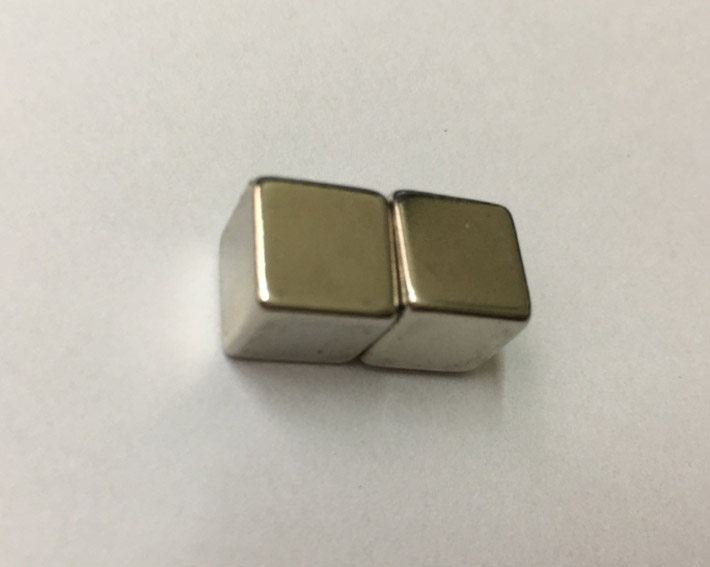Magnets are more commonly used in daily life and industrial applications, are you curious if magnets can also work properly in water? Will there be a problem of weakened magnetic force? The following editorial for you to popularize this knowledge.
Let's start with the conclusion that magnets can work underwater, except that performance and durability depend on the magnet type and protective treatment.
Square nickel-plated neodymium magnets

Why?
Because water is a non-magnetic substance that offers little or no resistance to the propagation of a magnetic field, which makes the magnet's ability to attract water essentially unchanged underwater. However, the resistance of water may affect the operating efficiency of the magnet to some extent.
Types of magnets suitable for working underwater;
There are mainly neodymium iron boron magnets, samarium cobalt magnets, ceramic ferrite magnets. Among these 3 types of magnets, NdFeB magnet has the strongest magnetic force, but it is easy to corrode, so it needs to be well protected to work underwater, such as plating epoxy resin (black epoxy), wrapping glue, sealing and other protective measures. Samarium cobalt magnets have good corrosion resistance, suitable for long time underwater use, but the cost is higher. Ferrite magnet has high chemical stability, corrosion resistance, not easy to be affected by water or moisture, but the magnetic force is weak, may not be able to meet the magnetic strength you need.
How to choose magnets for underwater work?
This needs to be based on the specific needs, if you need to adsorb heavy objects, you can choose neodymium strong magnets because they have very high magnetic energy product, just need to be well plated to protect or waterproof sealing. In high salinity environment, it is recommended to prefer samarium cobalt magnets or ferrite magnets.
In conclusion, magnets can work underwater, but it is necessary to choose the right material and take the necessary protective measures according to the actual needs. In freshwater environments, magnets with basic protection usually meet the needs; while in more corrosive seawater, it is recommended to use magnets made of corrosion-resistant materials or fully enclosed designs.
Hot sale underwater work magnets;
Similar questions;
 China Neodymium And Ferrite Magnets Manufacturer & Supplier
China Neodymium And Ferrite Magnets Manufacturer & Supplier 


